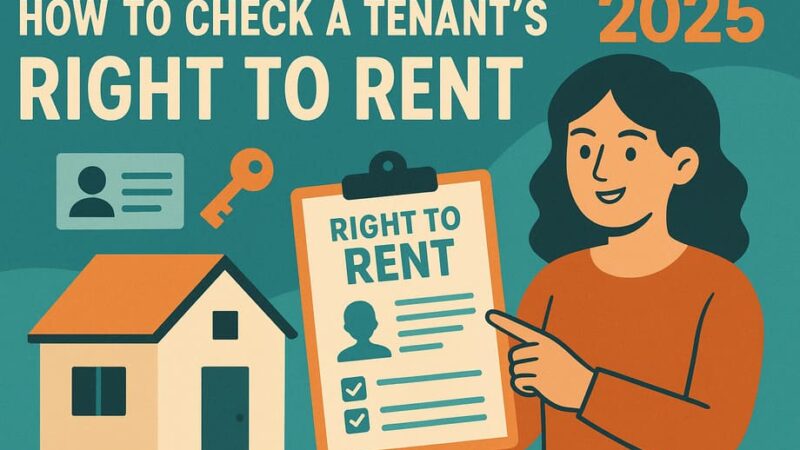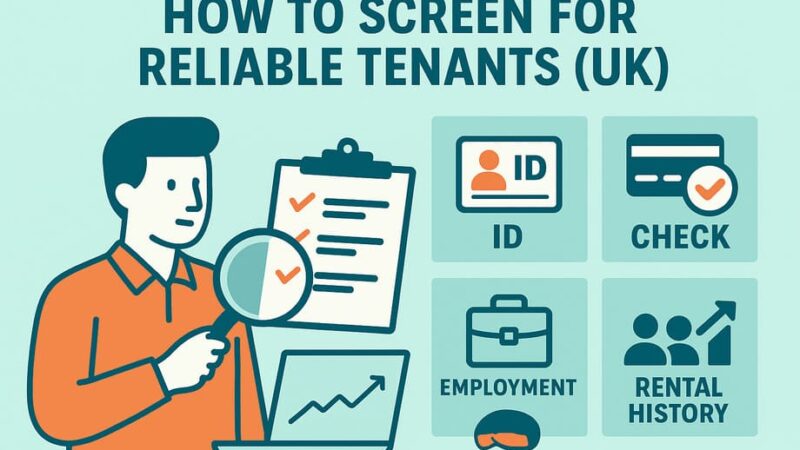What’s The Best Way To Collect Rent As a Landlord? UK Guide 2025

Collecting rent on time is one of the biggest challenges facing UK landlords. Whether you’re a first-time landlord or managing multiple properties, choosing the right rent collection method directly impacts your cash flow and minimises disputes with tenants.
The best way to collect rent in the UK is by standing order, which allows tenants to set up automatic monthly payments from their bank account. This method is simple, reliable, cost-free, and provides a clear paper trail. For landlords wanting additional security, direct debit through a rent collection agency offers more control but comes with monthly fees.
In this guide, we examine the most common rent collection methods, explain your legal obligations, and provide practical advice on handling late payments.
Legal Requirements Before Collecting Rent
Before you collect rent, you must fulfil certain legal obligations. Failing to meet these requirements makes it difficult to evict tenants or pursue rent arrears through the courts.
Documents You Must Provide
Your tenants must receive these before the tenancy begins:
- Energy Performance Certificate (EPC)
- Gas Safety Certificate (if applicable)
- How to Rent guide (latest government version)
- Electrical Installation Condition Report (EICR) if required
- Deposit protection certificate and prescribed information
Protect the Deposit
Place your tenant’s deposit in a government-approved scheme within 30 days:
- Deposit Protection Service (DPS)
- MyDeposits
- Tenancy Deposit Scheme (TDS)
Failure to protect the deposit can result in fines up to three times the deposit amount and prevent you from serving a Section 21 notice.
Specify Terms in Your Tenancy Agreement
Your tenancy agreement must clearly state:
- Rent amount and due date
- Whether rent is payable in advance or arrears
- Accepted payment methods
- Your bank account details
- Late payment consequences
If you don’t specify rent in advance, tenants can legally pay in arrears, which damages your cash flow.
When Should Rent Be Paid?
Most UK landlords require rent in advance at the start of each month. For example, January’s rent is paid on 1st January. You must state this in your tenancy agreement. If you don’t, the default position is that rent is payable in arrears at the end of the month.
For mid-month move-ins, calculate rent pro-rata from the move-in date to month-end, then start normal monthly payments on the first of the following month.
The 5 Best Ways to Collect Rent
1. Standing Order
Best for: Most UK landlords
The most common and easiest way for tenants to pay rent is by standing order. Your tenant sets this up with their bank to automatically transfer a fixed amount to your account on the due date each month.
How It Works: The tenant contacts their bank and provides your account details, the rent amount, and the payment date. Once set up, payments happen automatically.
Pros:
- Completely free for both parties
- Simple to set up
- Automatic monthly payments
- Clear bank record
- Requires minimal landlord involvement
Cons:
- Payment won’t process if tenant has insufficient funds
- Tenant can cancel at any time
- Landlord cannot change the amount
- Requires tenant to update for rent increases
Best Practice: Ask tenants to set up the standing order during check-in and request confirmation once complete.
2. Direct Debit
Best for: Landlords wanting more control
Direct debits differ from standing orders. The receiving organisation controls the payment and can change the amount collected each month. You’ll need to use a rent collection agency to set this up.
How It Works: A rent collection agency manages your rent collection. Your tenant signs a Direct Debit Mandate authorising the agency to collect rent. The agency debits rent on the agreed date and transfers it to your account.
Popular UK Rent Collection Agencies:
- GoCardless
- RentCollection.co.uk (around £10-15/month)
- ClearRent
- LettsPay
Pros:
- More reliable than standing orders
- Landlord can adjust rent amounts
- Agency chases late payments
- Automated reminders
- Some offer guaranteed rent
Cons:
- Costs £10-20 per month
- More complex setup
- Reduces rental yield
Key Difference: Standing orders are controlled by the tenant; direct debits are controlled by the payee (landlord/agency).
3. Bank Transfer
Best for: One-off payments or flexible arrangements
Bank transfers allow tenants to manually send money using online banking, telephone banking, or in-branch services.
Pros:
- Free for both parties
- Fast (Faster Payments within 2 hours)
- Clear transaction record
- Widely available
Cons:
- Requires monthly manual action
- No automation
- Easy to forget
- Higher chance of late payments
Best Practice: Use bank transfers as backup methods rather than primary collection. They work for rent increases or one-off adjustments but shouldn’t be your main method.
4. Online Rent Collection Platforms
Best for: Tech-savvy landlords
Purpose-built platforms offer automated rent collection with additional property management features.
Popular UK Platforms:
- Landlord Studio (free rent collection)
- OpenRent (free landlord services)
- Goodlord (digital tenancy management)
- Landlord Vision (property management)
How They Work: You create an account, add properties, and invite tenants. Tenants pay through the platform via bank transfer or card. Money deposits into your account within 1-3 days.
Pros:
- Automated rent reminders
- Payment history and receipts
- Accounting integration
- Mobile apps
- Professional appearance
Cons:
- Both parties need accounts
- Learning curve
- Some charge monthly fees
- Card payments incur 2-3% fees
5. Letting Agent
Best for: Hands-off landlords
Full-service letting agents handle rent collection as part of their property management service.
Typical Costs:
- Tenant Find Only: 6-8% of annual rent
- Rent Collection: 8-10% of monthly rent
- Fully Managed: 10-15% of monthly rent
Pros:
- Completely hands-off
- Professional rent collection
- Agency chases late payments
- Handles maintenance and repairs
- Legal compliance support
Cons:
- Expensive (8-15% of rent)
- Reduces rental yield
- Less direct control
- Varying quality between agents
Methods to Avoid
Cash
Cash provides no paper trail, creates disputes, poses safety risks, and complicates tax reporting. If you must accept cash, always provide written receipts immediately and bank it the same day.
Cheques
Cheques take 3-5 days to clear, can bounce, require physical banking, and are increasingly rare. Only accept from tenants who cannot use modern banking methods.
What to Do If Your Tenant Doesn’t Pay Rent
Week 1: Send a Friendly Reminder
Late rent could be an honest mistake. Send a polite message:
“Hi [Name], I noticed this month’s rent hasn’t arrived yet. It was due on [date]. Could you confirm when you’ll be making the payment?”
Week 2: Formal Written Notice
Send formal written notice by email and post stating the amount owed, referencing the tenancy agreement, and requesting immediate payment.
Week 3-4: Understand the Situation
Contact the tenant to understand why rent is late. Temporary financial difficulty? Job loss? Benefits delay? Understanding the cause helps determine next steps.
Consider a Payment Plan
If the tenant is genuinely struggling, consider breaking arrears into manageable instalments. Sign a formal payment agreement documenting everything in writing.
Formal Action: Section 8 Notice
If the tenant won’t cooperate or arrears exceed two months, serve a Section 8 notice seeking possession based on rent arrears. This starts formal eviction proceedings.
Court Action
If the Section 8 notice expires without resolution, apply to court for a possession order. The process takes 8-12 weeks and costs £500-600 plus potential legal fees.
Important: Never change locks or force tenants out. Only court bailiffs can physically evict. Illegal eviction is a criminal offence.
Tips for Successful Rent Collection
Set Clear Expectations Explain your preferred payment method during tenant referencing and provide written instructions for setting up payments.
Make It Easy to Pay Provide clear bank details in writing and offer multiple payment options if possible.
Keep Detailed Records Maintain records of every payment, dates, amounts, late payments, and all communication with tenants.
Communicate Professionally Even when chasing late rent, remain calm, focus on facts, and document all communication.
Consider Rent Guarantee Insurance Rent guarantee insurance protects against tenant arrears (up to £50,000) and covers legal costs for eviction. Costs typically range from £15-30 per month.
Frequently Asked Questions
What is the most secure way to collect rent in the UK?
Standing orders provide the best balance of security, cost, and convenience. For additional security, direct debit through a rent collection agency offers guaranteed payments with professional arrears management for £10-20 monthly.
What’s the difference between standing order and direct debit?
A standing order is set up by the tenant who controls the amount and timing. A direct debit is set up by the payee (landlord or agency) who controls the amount. Direct debits require signed mandates and are harder to cancel.
Should I use a letting agent to collect rent?
Letting agents make sense if you lack time, live far from the property, or prefer hands-off management. They charge 8-15% of monthly rent but handle all tenant issues including rent collection and arrears.
Can I charge a fee if rent is late?
You cannot charge fees to tenants under the Tenant Fees Act 2019. However, you can claim interest on late rent at 3% above Bank of England base rate. Late payment terms must be in your tenancy agreement.
What should I do if my tenant falls into rent arrears?
Start with a friendly reminder, then formal written notice. Understand the cause and consider payment plans for genuine financial difficulty. If arrears exceed two months, serve a Section 8 notice and begin possession proceedings if necessary.
Conclusion
The best way to collect rent in the UK is through standing orders, offering a simple, free, and reliable automatic payment system. For landlords managing multiple properties or wanting guaranteed payments, direct debit through a rent collection agency provides additional security at modest cost.
Quick Recommendations:
- Best for Most Landlords: Standing Order (free, automatic, reliable)
- Best for Multiple Properties: Direct Debit via rent collection agency
- Best for Tech-Savvy: Online platforms like Landlord Studio or OpenRent
- Best for Hands-Off: Fully managed letting agent service
Whatever method you choose, ensure your tenancy agreement clearly states payment terms, fulfil all legal obligations, and maintain detailed records. Clear communication and professional conduct are essential for successful rent collection.
Remember that preventing rent arrears is easier than recovering them. Set clear expectations from the start, make payment convenient, and address payment issues immediately rather than letting them accumulate.
Last Updated on October 22, 2025 by James Cartwright







